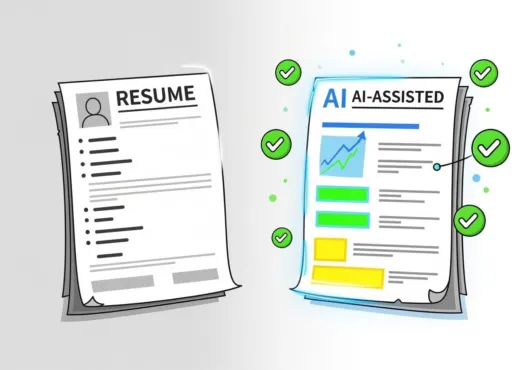“Practice the speech with a robot so you bleed less on stage.”
You’re not breaking up—yet. You’re pressure-testing the fallout. Two laptops. One kitchen table. You feed a model a sanitized version of your worst fights and ask it to play you both—plus a mediator who doesn’t need coffee. The point isn’t to automate heartbreak; it’s to see where your story snaps when you tug it.
Use an LLM to rehearse tough conversations, not to outsource them.
Keep cast and rules minimal; stop the moment it feels like theater instead of truth.
Finish human: short walk, short list, real decisions offline.
What This Is (and Isn’t)
It’s a simulation to surface patterns before they become paperwork. You and your partner co-write a neutral timeline: money, chores, kids, pets, careers, housing, non-negotiables. The model runs scenes: negotiation, apology, logistics, “what if we split.” You watch for failure modes—stonewalling, sarcasm loops, phantom promises—then decide what you’ll handle as humans. This is not legal advice, therapy, or a replacement for either. It’s rehearsal. With padding on the corners.
The Cast (keep it small, keep it clear)
- You-Bots: Two LLM personas (“Partner A,” “Partner B”) primed with facts only, no gossip.
- Mediator: A third persona whose only job is to clarify, time-box, and summarize without taking sides.
- Historian: A lightweight logger that turns scenes into bullet summaries and open questions for humans later.
The Rules of Engagement (guardrails that save the night)
Time-boxing: 20-minute scenes; mandatory 10-minute break between.
No secret prompts: Everything the bots read, both of you see.
No promises: Bots can’t decide custody, cash, or who keeps the dog. They can draft options, that’s it.
Red-flag exit: If either person feels targeted or flooded, stop the sim; switch to a walk, not another prompt.
What Usually Happens
The bots mirror your tone with unsettling accuracy. If one of you uses precision as a weapon, Lawyer-Mode spins up and you get “exhibits.” If one of you dodges with humor, you get jokes where you needed a boundary. The mediator over-summarizes the part that matters least and underlines the part you were hoping to avoid. Useful? Weirdly, yes. You learn which phrases detonate (“We’ll figure it out later”), which topics sprawl (money + housing), and where your logistics are actually values in drag.
Make It Human Again
After each scene, talk without the model. What felt fair? What felt like theater? Translate the bot’s tidy bullets into your own messy language. If you need real advice, call a grown-up: mediator, therapist, attorney. Don’t let a prediction engine officiate your life.
When to Skip the Whole Thing
If there’s abuse, control, safety risks, or legal landmines—do not play rehearsal games. Go straight to professional help and a safety plan. A calm robot can’t fix a dangerous human.
The Tiny, Not-Stupid Dress Rehearsal (30 minutes, tops)
Write a neutral timeline together; draft two I-statements about the hardest topic; run one 20-minute scene (you-bots + mediator) about only logistics for the next 30 days; take a 10-minute walk; return and write three human sentences: what you’re keeping, what you’re changing, what you refuse to decide with a bot. Done.



